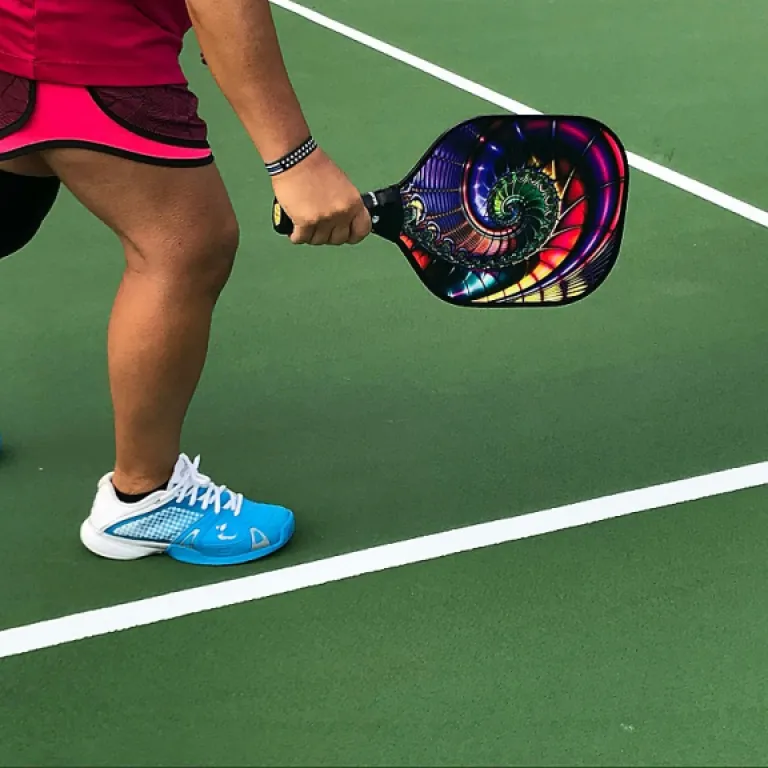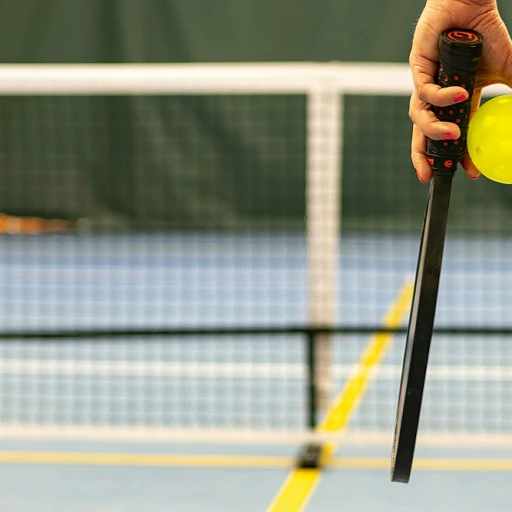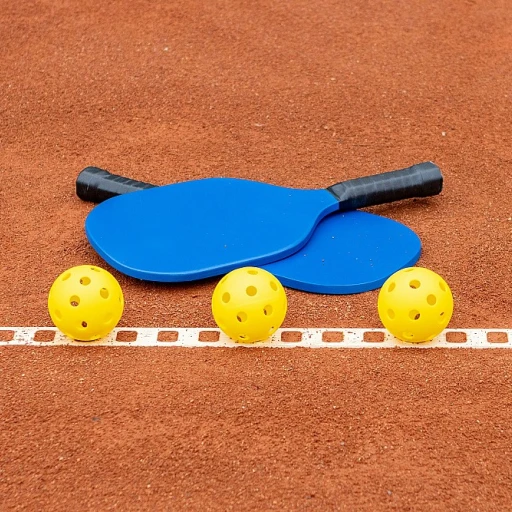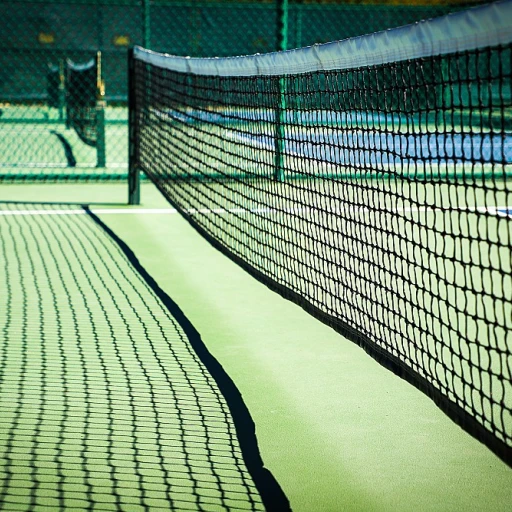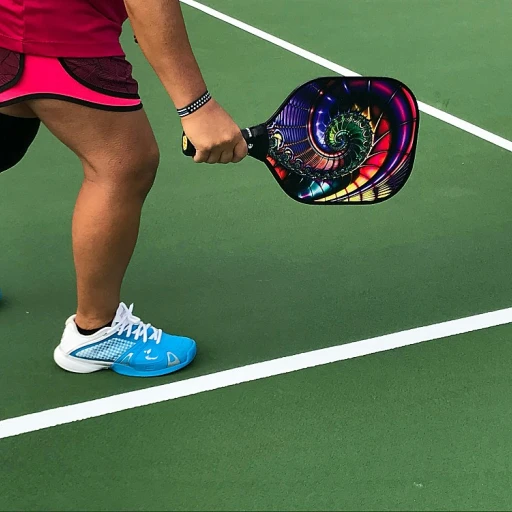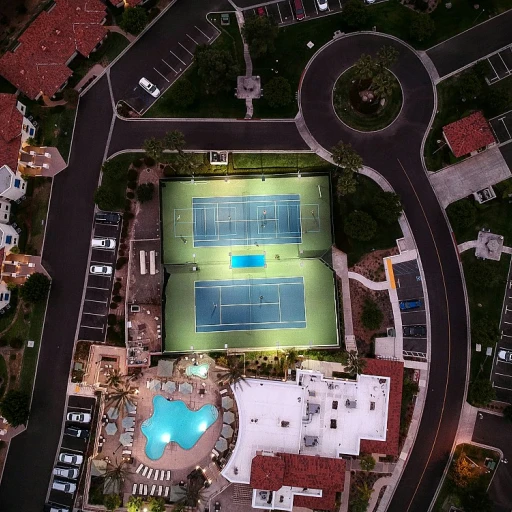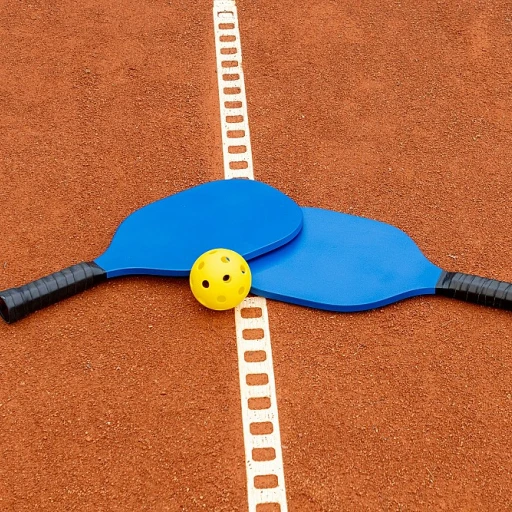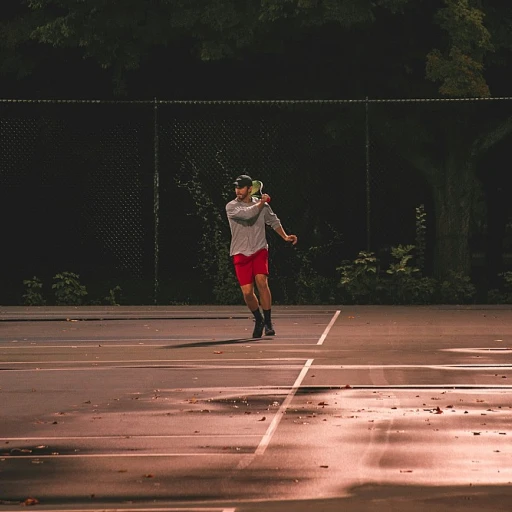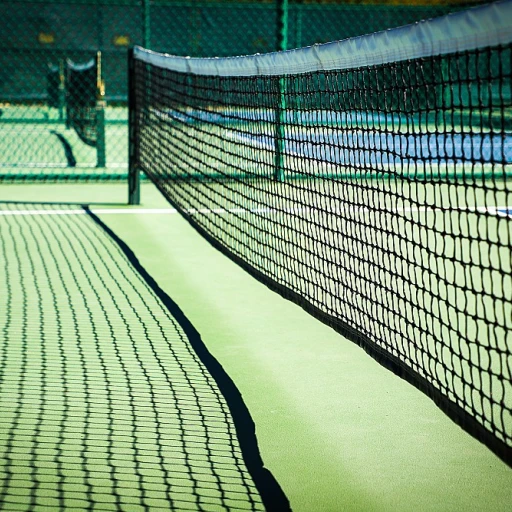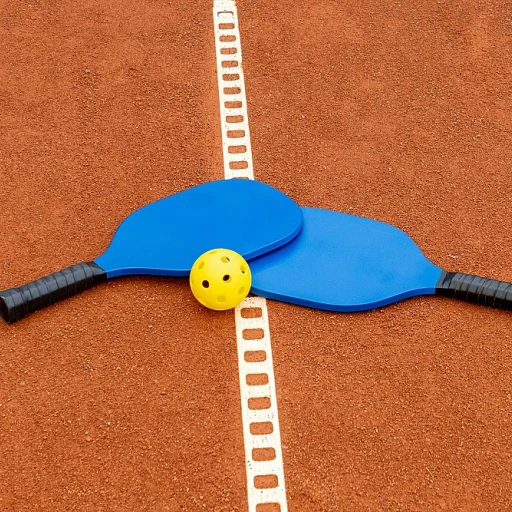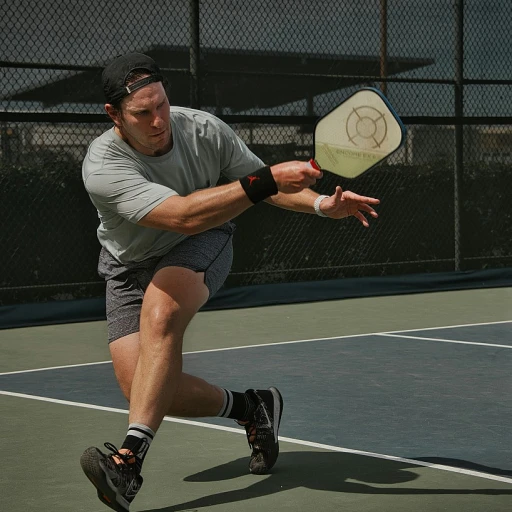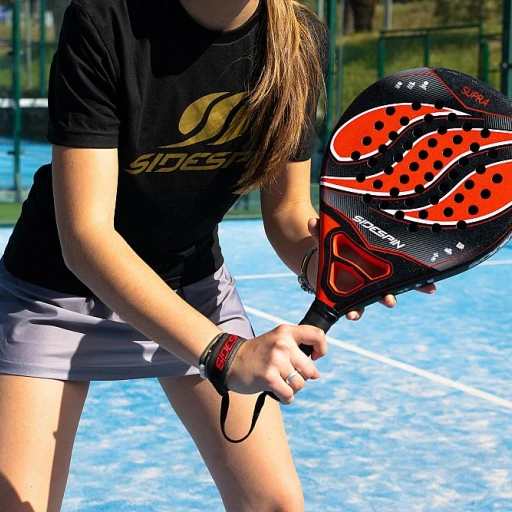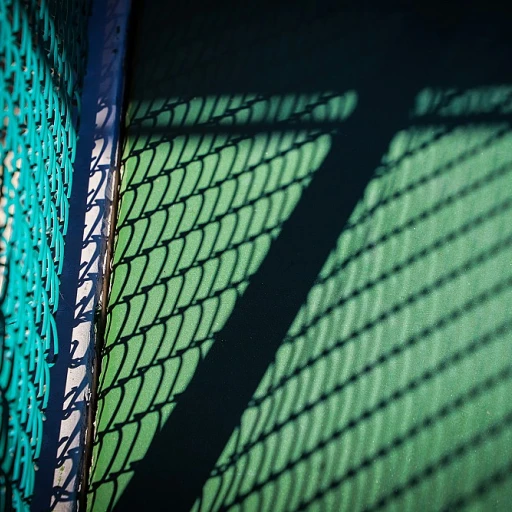
The basics of pickleball slang
An Introduction to the Jargon of Pickleball
To navigate the world of pickleball, a player needs more than just skill on the court. Understanding the unique vernacular of the game is equally important. Pickleball, with its own blend of terms, brings together casual players and seasoned competitors in a dance of communication. Here’s a primer on the basics. Pickleball terms have evolved into a cornerstone of the sport, helping players communicate effectively during play. Words like "kitchen," referring to the non-volley zone, and "dink," a type of soft shot, provide clarity and precision, especially when strategizing or following the action on the court. As the ball flies toward the net, players might yell "let" if it clips the net during a serve, making a myriad of terms indispensable in the dialogue on the pickleball court. Understanding these slang terms is crucial for several reasons. For one, it helps in coordinating better with teammates during doubles matches and offers a distinct advantage over opponents by mastering the terminology faster, especially in regions where variations exist. Moreover, as we will explore in the following sections, the origins and regional variabilities of pickleball slang provide further depth to these terms. The language not only enhances gameplay but also mirrors the sport's rich history and cultural diversity among players globally. Learning this unique language is just as important as mastering a backhand shot or perfecting a drop shot. Both players and enthusiasts find appreciation and understanding in every hit—and hopefully, a new bond over the shared language of this beloved game.Common terms and their meanings
Exploring Common Pickleball Lingo
Understanding the language of pickleball can seem daunting for beginners, but it is essential to grasp these terms to enjoy the game fully. Here are some commonly used slang terms and their meanings:- Kitchen: This refers to the non-volley zone on the court. Players must be cautious not to step into the kitchen when executing a volley. For more on why it's called the kitchen, read this article.
- Third Shot: Often a strategic drop shot aimed just over the net, focusing on catching an opponent off-guard after a serve and return.
- Pickleball Paddle: The equipment players use to hit the ball. Unlike other racket sports, the paddle is solid and lacks strings.
- Volley Zone: The area where players can execute volleys, though staying mindful of the kitchen boundary is crucial.
- Paddle Face: This is the hitting surface of the pickleball paddle, which players use to make direct contact with the ball.
- Serving Team: The team responsible for serving the ball to start a rally and earn points.
The origins of pickleball slang
The roots of pickleball slang
The world of pickleball is steeped in a colorful vocabulary that enhances the dynamic nature of the game. Delving into the origins of pickleball slang can provide insightful context into the playful spirit that defines this sport. Often, these terms have intriguing histories that reflect the evolution of gameplay and strategies. Pickleball originated in the mid-1960s, conceptualized as a simple game for families to enjoy together. As the game began to spread from neighborhood driveways to organized courts across the globe, so too did its unique lexicon. Terms such as "kitchen," "dink," and "poach" emerged from casual conversations and have since become ingrained in the sport's culture. Many slang terms in pickleball have roots in the sport's casual, backyard beginnings. The term "kitchen," for instance, refers to the non-volley zone near the net, evolving from the kitchen baseline to a critical zone in strategy. Its playful name mirrors the sport’s often lighthearted approach. You can discover more about why it is called the kitchen in pickleball here. As pickleball gained traction, players and enthusiasts began to adapt traditional tennis and badminton terms, adding a unique twist suitable for pickleball's distinctive style. For instance, the "third shot" or "drop shot" has become a crucial part of pickleball strategy, reflective of the tactical depth the game offers. The grounding of pickleball slang in its convivial origins not only enriches the cultural fabric of the sport but also enhances the player experience on the pickleball court by making communication more efficient and enjoyable. Embracing this language allows players to feel more connected to the game and its community, whether strategizing with their team or engaging with opponents across the net. To explore more about enhancing your pickleball experience with creative decorations, which can further connect players to the sport’s culture, check out this link.Regional variations in pickleball language
Regional Twists in the Pickleball Dialect
Regional variations in pickleball language can add an intriguing layer to the game. As the popularity of pickleball spreads across different areas, players have adapted existing slang terms or created new ones to fit their style of play on the court. Much like the way accents or dialects can form in different geographic areas, pickleball is no exception in developing such regional twists. For instance, players in the United States, where pickleball originated, might commonly refer to the “kitchen” as the “non-volley zone.” This is the area located 7 feet from the net on each side, where volleys aren’t permitted. However, in some areas, local players might refer to the kitchen using their own unique term that reflects the local culture or humor, leading to an entertaining exchange when players from different regions meet in a pickleball game. In places where the game is newer, such as certain regions in Europe or Asia, the pickleball slang can be heavily influenced by local sports terminologies. For example, a “drop shot” around the net might be viewed in the same context as similar strategies in tennis, making local terms overlap between sports, which requires some acclimatization for players accustomed to traditional American pickleball slang. The region-specific language not only reflects cultural nuances but can also influence strategies during play. Teams might develop unique signals or code words to alert each other about an upcoming serve or unexpected play, making communication swift and nuanced, a crucial skill when both competing and collaborating. In this dynamic pickleball environment, learning regional terminology can significantly boost a player’s effectiveness on the court. As you become familiar with how different communities use their own set of slang terms, it becomes easier to adapt and respond strategically during a match. Understanding these nuances can make all the difference, whether you’re positioning at the baseline, guarding the side court, or preparing for another thrilling showdown at the net with your opponent.How slang impacts gameplay
The Influence of Pickleball Slang on Game Dynamics
In the lively world of pickleball, the impact of slang terms and unique language on gameplay can be quite significant. These terms do more than just add a touch of color to conversations on the pickleball court—they influence how players navigate and approach the game, affecting both strategy and performance.
Firstly, understanding the assorted slang used on the pickleball court aids in rapid strategy adjustments. Terms like 'kitchen' and 'drop shot' are not merely colloquial; they encapsulate essential tactics that enable players to swiftly communicate and react. Knowing the precise meaning of a term like 'kitchen'—referring to the non-volley zone—can prevent costly foot faults and ensure a legal shot.
Additionally, knowing slang can empower you to better anticipate actions by the opponent. For instance, references to a 'third shot drop' strategy help players quickly understand that a defensive or neutralizing shot is forthcoming, often shifting to optimize their positions along the baseline or set up at the net.
The impact is also evidenced in team communications. Effective dialogue between teammates often revolves around slang that has broader acceptance on the court. Terms concerning the 'serve', server number, or 'side court' can enhance synchronization, allowing the serving team to strategize effectively for higher scores.
Moreover, the use of slang terms plays a role in the psychological aspect of the game. Familiarity with the language not only boosts confidence but also fosters an inclusive atmosphere where players feel connected. This can result in a clearer focus and better performance when hitting balls, executing volleys, or playing strategically along the kitchen baseline.
In summation, mastering the unique language of pickleball doesn't merely augment communication; it directly influences game strategy and enhances overall dynamics, paving the way for a more enriching pickleball experience. Whether you're engaging in a casual game or a competitive match, understanding and utilizing slang terms effectively can make all the difference in how the pickleball game unfolds.
Learning and adapting to pickleball slang
Embracing the Pickleball Lexicon
For newcomers to the pickleball court, the unique slang can seem like a foreign language. However, learning and adapting to these pickleball terms is crucial for effective communication and gameplay. Here's how you can get started:
- Observe and Listen: Spend time watching experienced players. Pay attention to how they use terms like "kitchen," "drop shot," and "third shot." This will help you understand the context in which these words are used.
- Practice with Purpose: As you play, try to incorporate the slang into your conversations. Whether you're discussing a "serve" or strategizing about the "volley zone," using the correct terminology will enhance your understanding of the game.
- Engage with the Community: Join local pickleball clubs or online forums. Engaging with other players will expose you to regional variations and help you pick up new slang terms.
- Ask Questions: Don't hesitate to ask more experienced players about unfamiliar terms. Most players are happy to share their knowledge and help you learn.
- Stay Updated: The language of pickleball evolves as the sport grows. Keep up with the latest slang by following pickleball blogs and social media channels.
By immersing yourself in the pickleball community and actively using the slang, you'll not only improve your gameplay but also feel more connected to the sport and its players. Remember, the key to mastering the pickleball language is practice and participation.

